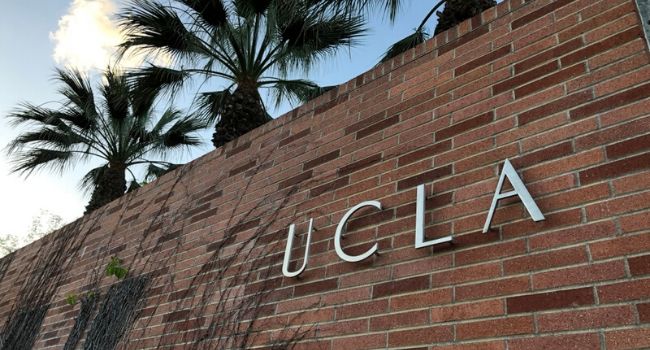
UCLA Abandons Plans To Use Facial Recognition On Campus After Students Voice Concerns
The university publicly disclosed that it was considering adding facial recognition software to its security operations, but backed away from the proposal after students and faculty voiced their opposition.
- By Haley Samsel
- March 02, 2020
Following sustained protests from students, the University of California, Los Angeles announced that it would drop its plans to use facial recognition software as part of its campus security strategy.
The technology had originally been proposed last year, with students having the opportunity to comment on the policy in June. Many voiced concerns, and thanks to a campaign by digital rights organization Fight for the Future, those concerns were elevated through protests and social media campaigns.
In response, UCLA administrators told Fight for the Future last month that they would no longer pursue the use of facial recognition on campus.
“We have determined that the potential benefits are limited and are vastly outweighed by the concerns of the campus community,” Michael Beck, a vice chancellor at the school, told Evan Greer, the deputy director of Fight for the Future, in an email.
In a statement, student activist Matthew William Richard said that he was excited to see that UCLA listened to its students, workers, faculty and community by deciding to abandon its plans.
“We hope other universities see that they will not get away with these policies,” Richard, a third-year student at UCLA, said. “We hope UCLA continues their progress by specifically codifying this prohibition of software and creating infrastructure to legitimize our voices going forward; together we can demilitarize and democratize our campuses.”
Prior to UCLA’s announcement, Fight for the Future had contacted administrators about the results of an experiment its researchers had done to show the potential issues with using facial recognition for campus security purposes. Using Amazon’s Rekognition software, the organization ran 400 photos of UCLA’s football and basketball teams along with faculty members through a mugshot database.
Of those images, 58 photos of student-athletes or faculty members were falsely matched with mugshots in the database. Most of those images featured people of color, showing the potential accuracy issues that the university would have faced had it adopted facial recognition.
“I’m glad the administration listened to the community and is abandoning this plan,” Kimberlé Crenshaw, a UCLA law professor who developed the academic definition of intersectionality and was incorrectly matched with a mugshot photo, said in a statement. “Other school administrators should follow suit. Racially biased surveillance does not make our communities safer.”
Fight for the Future keeps a scorecard of universities that have publicly disclosed their policies on facial recognition, but many have not responded. This means that many universities could be using the technology already but are not coming forward about their policies.
“There are really no laws in place that would require private institutions, for example, to even disclose to their students that they’re doing this,” Greer told Inside Higher Ed. “We really do need policies in place so that it’s not up to school administrators.”
About the Author
Haley Samsel is an Associate Content Editor for the Infrastructure Solutions Group at 1105 Media.